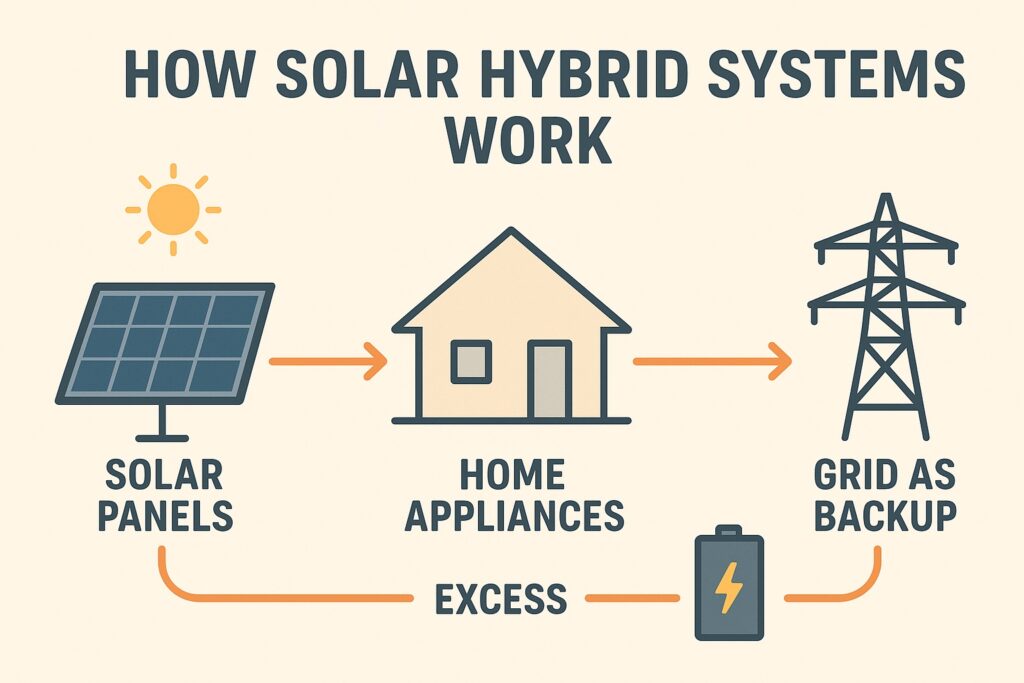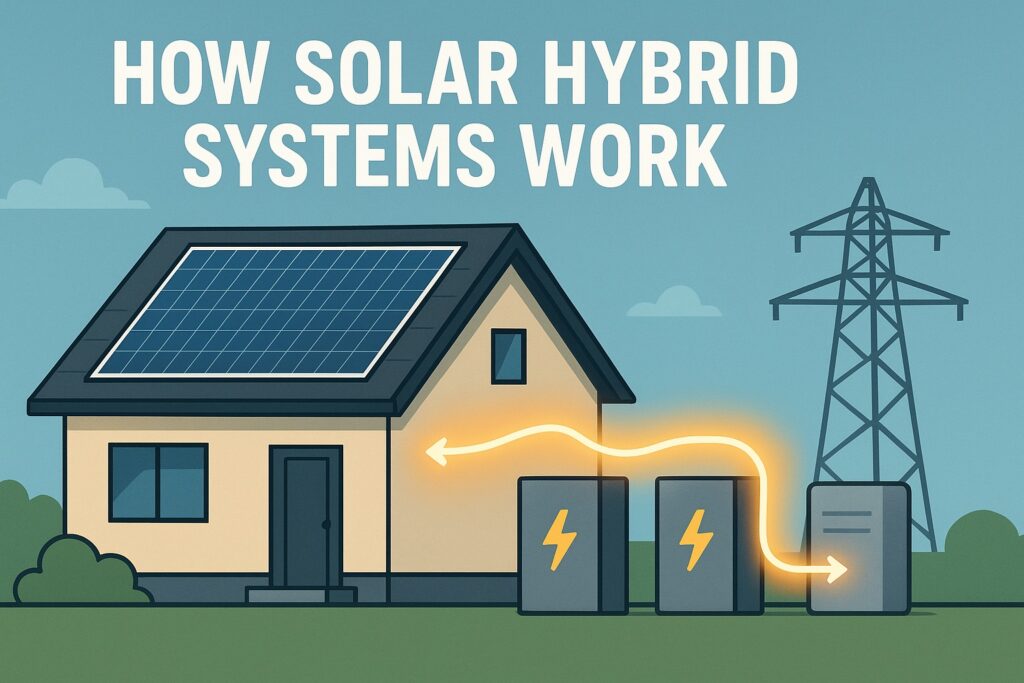
In today’s world, energy demands are higher than ever. Frequent power cuts, rising electricity costs, and concerns about sustainability are driving homeowners and businesses to look for smarter solutions. One of the most promising answers is the solar hybrid system—a modern energy setup that combines solar panels, the electrical grid, and battery backup.
Let’s explore how solar hybrid systems work and why they are becoming the future of power.
What is a Solar Hybrid System?
A solar hybrid system is a power setup that blends three energy sources:
- Solar Power: Captured from solar panels during the day.
- Grid Supply: Electricity from the main utility line.
- Battery Backup: Stored power for use during night or outages.
Unlike traditional grid-tied systems, hybrids ensure that you never face a blackout. They automatically switch between solar, battery, and grid power to provide an uninterrupted energy supply.
Why Hybrid = Reliable During Power Cuts
Power outages are common in many regions, and they can disrupt both homes and businesses. Here’s why solar hybrid systems are so dependable:
- 24/7 Power Supply – When the grid fails, the battery backup instantly kicks in.
- Efficient Energy Use – Solar power is used first, batteries store excess, and the grid is the last resort.
- Reduced Downtime – Essential appliances like lights, fans, computers, and medical equipment keep running without interruption.
- Cost Savings – Using stored solar power during peak grid rates lowers electricity bills.
Benefits for Residential Use
Homeowners love hybrid systems because they provide peace of mind and savings. Key advantages include:
- No More Blackouts: Reliable energy for lighting, cooling, and appliances.
- Lower Bills: Reduced reliance on expensive grid electricity.
- Eco-Friendly Living: A greener lifestyle with reduced carbon footprint.
- Smart Monitoring: Many systems allow real-time energy tracking via apps.
Benefits for Commercial Use
Businesses and industries also benefit from solar hybrid systems.
- Uninterrupted Operations: Prevents downtime during outages, keeping productivity high.
- Energy Cost Control: Cuts long-term energy expenses, especially for energy-intensive industries.
- Sustainability Goals: Supports CSR initiatives and builds a green brand image.
- Scalability: Systems can be expanded as energy needs grow.
Why Solar Hybrid Systems Are the Future of Power
As the world shifts toward renewable energy, solar hybrid systems are leading the change. They combine the clean energy of solar panels with the reliability of batteries and the flexibility of the grid. For homes, offices, and industries, hybrids are not just an alternative—they’re the future of reliable, sustainable, and affordable energy.

